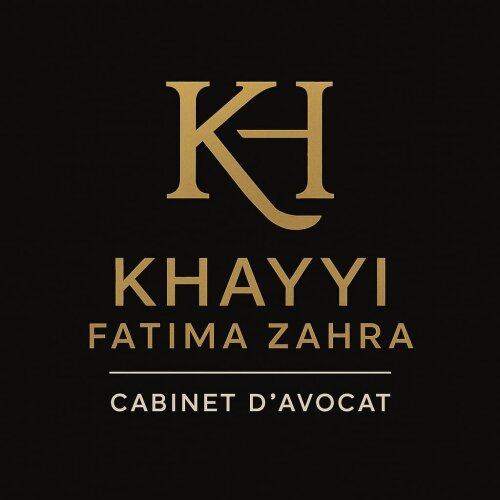Best Private Equity Lawyers in Rabat
Share your needs with us, get contacted by law firms.
Free. Takes 2 min.
List of the best lawyers in Rabat, Morocco
About Private Equity Law in Rabat, Morocco
Private equity refers to investments made in private companies-businesses not listed on the public stock exchange-with the goal of gaining capital growth and, often, management influence. In Rabat, Morocco’s political and administrative capital, the private equity sector has been growing steadily over the past decade, reflecting Morocco’s efforts to modernize its economy. Private equity transactions in Rabat typically involve share acquisitions, joint ventures, leveraged buyouts, and growth capital investments. These transactions usually require specialized legal support to navigate Moroccan regulations and to ensure that all parties’ rights and obligations are clearly defined and protected.
Why You May Need a Lawyer
Engaging in private equity in Rabat involves complex legal, regulatory, and financial considerations. Here are several common situations where having an experienced private equity lawyer is essential:
- Structuring and negotiating private equity investments to ensure compliance with Moroccan law.
- Conducting legal due diligence on target companies to identify hidden risks and liabilities.
- Drafting and reviewing investment agreements, shareholder agreements, and related documentation.
- Handling cross-border investment issues, including foreign investment regulations and currency controls.
- Advising on tax implications and structuring acquisitions for tax efficiency.
- Assisting with management buyouts or mergers and acquisitions involving private companies.
- Addressing disputes between investors, managers, or target companies.
- Complying with anti-money laundering and anti-corruption laws relevant to investment activities.
Legal guidance can make the difference between a successful investment and costly mistakes.
Local Laws Overview
Private equity in Rabat is governed by a mixture of Moroccan national laws and sector-specific regulations. Some of the critical legal considerations include:
- The Moroccan Commercial Code, which defines the rules for setting up and operating businesses in Morocco.
- Foreign investment regulations, which are favorable but require compliance with procedures set by the Moroccan Exchange Office for capital movements and currency conversions.
- Corporate governance standards, including requirements for shareholder meetings, board composition, and reporting.
- Taxation laws affecting capital gains, dividends, and interest derived from private equity investments, and incentives available in certain sectors or regions.
- Labor laws that affect mergers, acquisitions, or restructurings of companies with employees.
- Anti-money laundering and anti-corruption regulations, which are strictly enforced.
- Sector-based licensing or approvals for investments in regulated industries, such as finance, agriculture, energy, and telecommunications.
These aspects highlight the importance of understanding both the formal legal landscape and customary practices in Rabat and Morocco at large.
Frequently Asked Questions
What is private equity, and how does it work in Morocco?
Private equity involves investing in unlisted companies, often to restructure, grow, or prepare them for public offering or resale. In Morocco, private equity investments are typically structured as share purchases or capital injections, with investors getting a stake in the company in exchange.
Are foreign investors allowed to participate in private equity in Rabat?
Yes, Morocco welcomes foreign investors. There are generally no restrictions, but foreign investment must be declared to the Moroccan Exchange Office, especially for transferring funds in and out of the country.
How is the legal due diligence process conducted?
Lawyers review the target company’s legal status, contracts, licenses, intellectual property rights, labor obligations, tax status, and any ongoing litigation to uncover potential risks before finalizing a deal.
What are the typical tax implications for private equity investments?
Capital gains and dividend income are both taxed in Morocco, though tax treaties or incentives may reduce this burden in some cases. Consulting a lawyer or tax specialist is recommended for tailored advice.
Is it necessary to establish a local company for private equity activities?
Not always. Some investors operate through local holding companies or branches, while others may invest directly in Moroccan entities. The optimal structure depends on legal, operational, and tax factors.
What documents are involved in a private equity deal in Rabat?
Key documents include term sheets, share purchase agreements, shareholder agreements, corporate resolutions, and regulatory filings.
How long do private equity transactions typically take in Rabat?
Depending on the complexity and regulatory approvals required, deals can take anywhere from several weeks to several months.
Are there any restrictions on repatriating profits from private equity in Morocco?
Profits can be repatriated overseas, but require compliance with Exchange Office regulations, proper documentation, and completion of foreign investment declarations.
Can private equity funds invest in all Moroccan sectors?
Most sectors are open to private equity, but regulated sectors such as banking, insurance, and telecommunications may require additional approvals or licenses.
What is the role of the Moroccan Capital Market Authority in private equity?
The Moroccan Capital Market Authority (AMMC) regulates aspects of securities and investment activities, including public offerings and certain private placements involving collective investment schemes.
Additional Resources
If you are seeking further information or official guidance on private equity in Rabat, the following organizations and resources may be useful:
- Moroccan Exchange Office (Office des Changes) - for regulations on foreign investments and currency transfers.
- Moroccan Investment and Export Development Agency (AMDIE) - for investment incentives and sector-specific information.
- Moroccan Capital Market Authority (AMMC) - for information on regulated investment funds and market practices.
- General Confederation of Moroccan Enterprises (CGEM) - for networking and updates on the business climate.
- Legal and tax advisory firms in Rabat specializing in corporate and investment law.
Next Steps
If you are considering a private equity investment or transaction in Rabat, Morocco, the following steps will help guide you:
- Define your investment goals and identify potential target companies or partners.
- Consult with a local private equity lawyer to assess legal requirements and risks.
- Conduct initial due diligence to understand the legal, tax, and operational environment.
- Prepare and review transaction documents with legal support to ensure compliance.
- Make necessary filings and declarations with the relevant Moroccan authorities.
- Consider ongoing legal advice for post-investment monitoring, dispute resolution, and exits.
Securing the services of an experienced local law firm or specialist ensures your private equity investment in Rabat is compliant, efficient, and well protected.
Lawzana helps you find the best lawyers and law firms in Rabat through a curated and pre-screened list of qualified legal professionals. Our platform offers rankings and detailed profiles of attorneys and law firms, allowing you to compare based on practice areas, including Private Equity, experience, and client feedback.
Each profile includes a description of the firm's areas of practice, client reviews, team members and partners, year of establishment, spoken languages, office locations, contact information, social media presence, and any published articles or resources. Most firms on our platform speak English and are experienced in both local and international legal matters.
Get a quote from top-rated law firms in Rabat, Morocco — quickly, securely, and without unnecessary hassle.
Disclaimer:
The information provided on this page is for general informational purposes only and does not constitute legal advice. While we strive to ensure the accuracy and relevance of the content, legal information may change over time, and interpretations of the law can vary. You should always consult with a qualified legal professional for advice specific to your situation.
We disclaim all liability for actions taken or not taken based on the content of this page. If you believe any information is incorrect or outdated, please contact us, and we will review and update it where appropriate.











